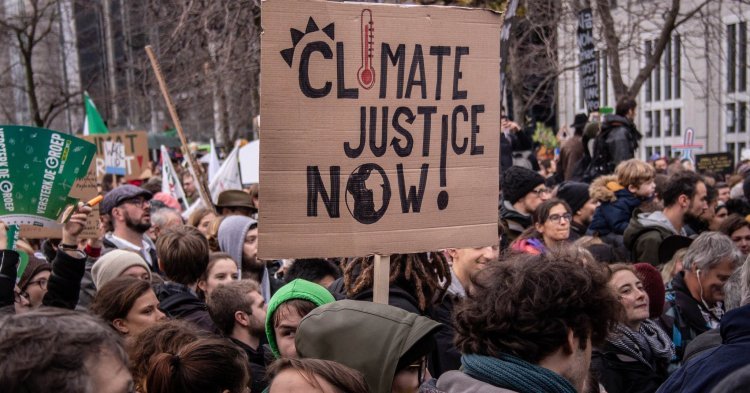In a report published last year, IPCC, the UN body researching climate, warns that only 12 years remain to limit global warming to 1.5 degrees. Global warming is not only behind the melting of the polar cap, but it also contributes to droughts, floods and the consequent widespread poverty in areas of high migration intensity. Of the many social, political and economic issues related to climate change, the effects on migration are among the most critical. (Accordingly, for years scholars and policy makers have been debating the – necessary – recognition of the climate/environmental refugee status.)
Climate and environment in national political agendas
Since the Paris Agreements in 2015, crucial elections have taken place in key Western countries, redefining internal political balances and related government agendas on environmental and climate issues.
United States: President Donald Trump broke with the previous administration’s policy, signing the exit from the COP21 climate agreements. The presidential administration has taken an extremist line. Trump has done this by repeatedly disavowing the scientific consensus on the climate emergency, evidenced by the fires that have hit California hard; instead giving precedence to a short-term vision, focused on maintaining the ’iron (and steel) pact’ with the most solid electoral pool of the so-called Rust Belt.
France: Ecological issues have the capacity to fragment the country, as the ‘gilets jaunes’ movement demonstrates. This planned ecological transition, whose social repercussions are disputed, remains one of the most touchy issues launched by President Macron. Nonetheless, in December at the European Conference on the Energy Transition the Minister for the Environment François de Rugy reiterated that a wider openness towards sustainable measures to reduce CO2 emissions cannot be postponed. In a recent public letter, the minister has again underlined the crucial role that France plays in the global fight against climate change.
Germany: As reiterated in the recent COP24 conference in Katowice, the country will put an end, by 2038, to its dependence on fossil fuels. Currently, around 40% of German national production is powered by coal-fired plants. The Greens’ rise has been one of the high-profile developments in German politics in the recent months;
Italy: The M5S-Lega government is divided on the Turin-Lyon high-speed railway and on the environmental impact of offshore oil concessions. The frictions with France and the national strategic interest in the high-speed railway collide. The entrepreneurs of the north, in favor of the conclusion of the project, are opposed to Movement supporters who contest the excessive construction costs and environmental damage.
The public care about climate
As noted in the 2017 Eurobarometer, climate threats do not leave EU citizens indifferent: 9 out of 10 consider them a ’serious problem’. In the order of urgency, climate ranks third among all issues, topped only by poverty (28%) and terrorism (24%). Of course, climate change is one cause of poverty, due to the impact on natural resources. Moreover, 90% of those interviewed say they have taken personal action to fight climate change.
Protests and symbols in political questions
Organised movements at local and transnational level are growing to pressure national governments on environmental questions. These have not only been media cases or isolated flash mobs. Just a few examples:
The protests of French yellow vests, in the streets for weeks, have had the (environmentally negative) effect of neutralising the increase in excise duties on fuel. At the same time, however, thousands of activists in 95 countries around the world have responded to the #RiseForClimate call which started as a demonstration against the policies of Trump administration before becoming a global forum that has organised hundreds of local meetings on environmental issues. Not to mention the student mobilisation spearheaded by the Swedish activist Greta Thunberg.
Even in the sphere of Catholic associations, especially in the United States, environmental questions have given rise to activism. The U.S Catholic Climate Declaration, signed by more than 600 organisations, scathes “the tragic consequences of unchecked human activity”, following the late Pope Paul VI. The declaration also quotes Pope Francis who writes in the encyclical “Laudato sì”, a manifesto of ecologism, in saying that “the climate is a common good, belonging to all and meant for all”.
In brief, among various sectors of society, environmental questions are rising towards the top of the political agenda. At the level of governments, too, environmental policy involves increasingly high-profile decisions. It seems fair to say that taking action is more urgent than ever.


Follow the comments: |
|
